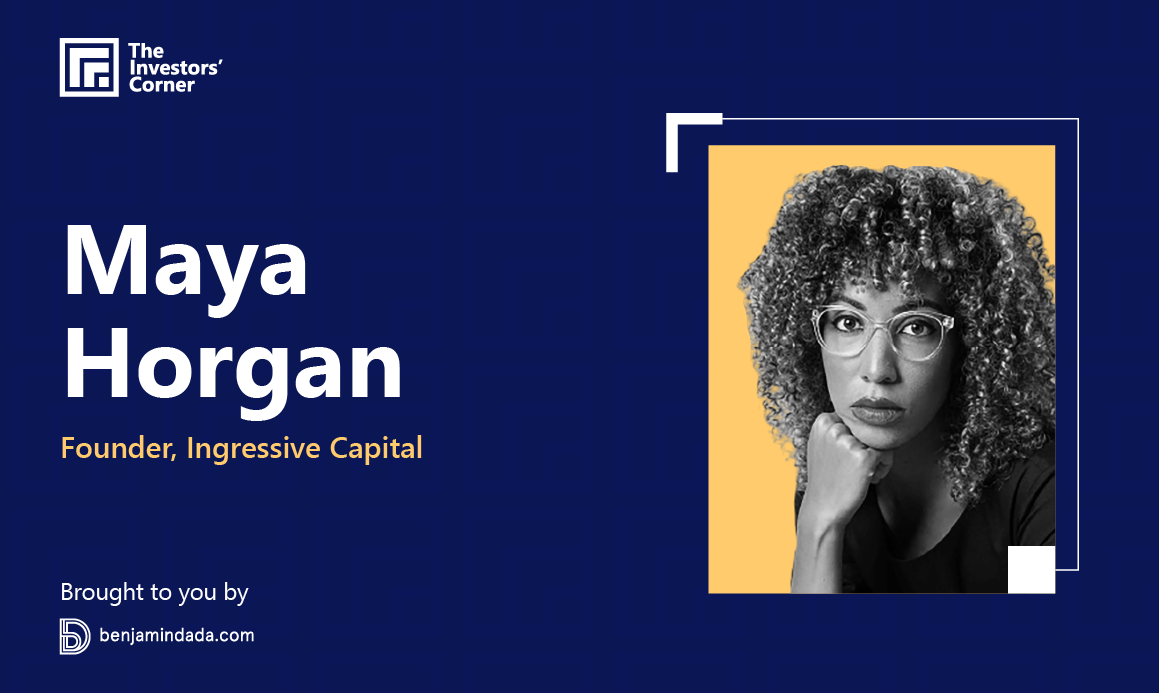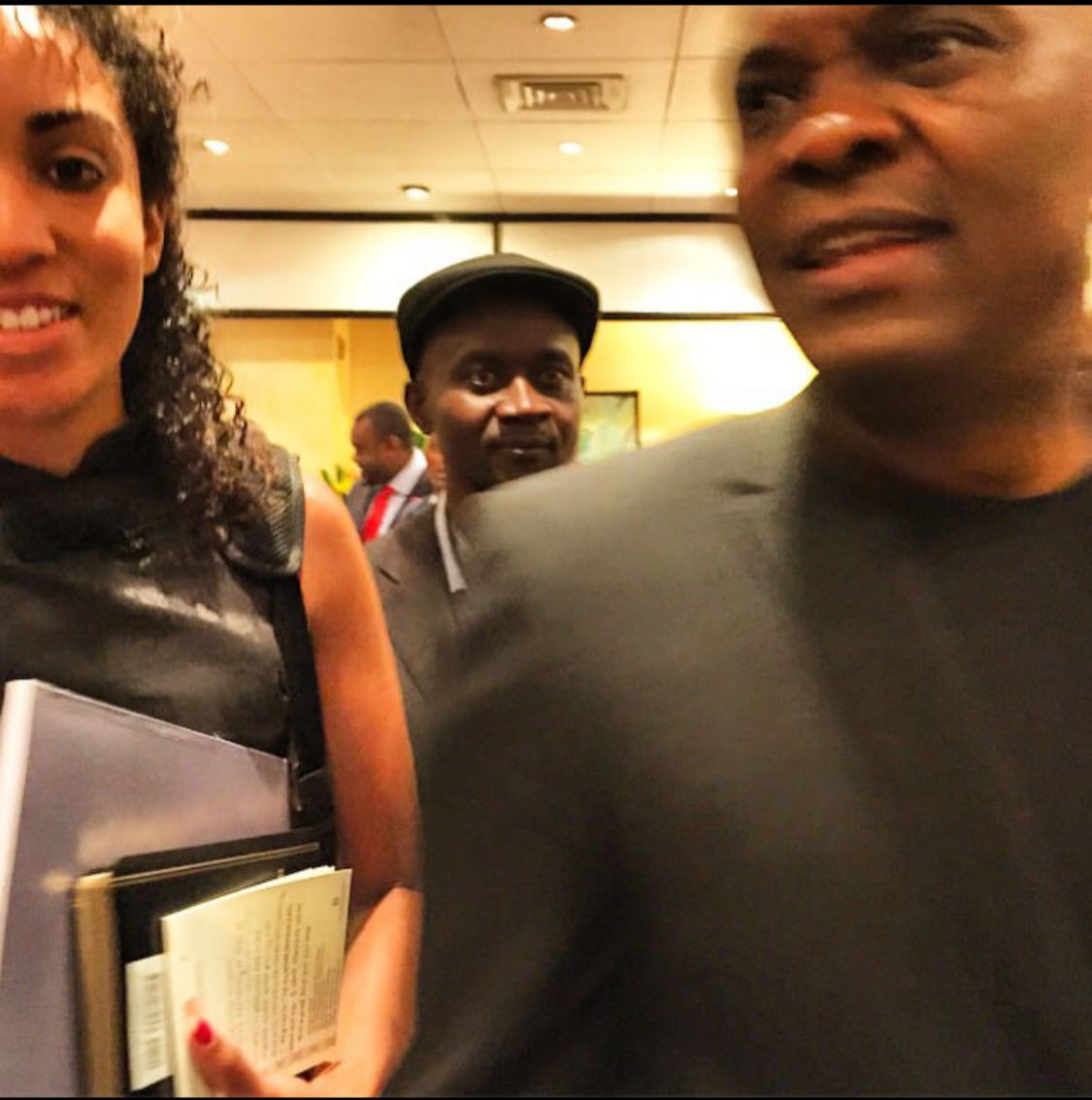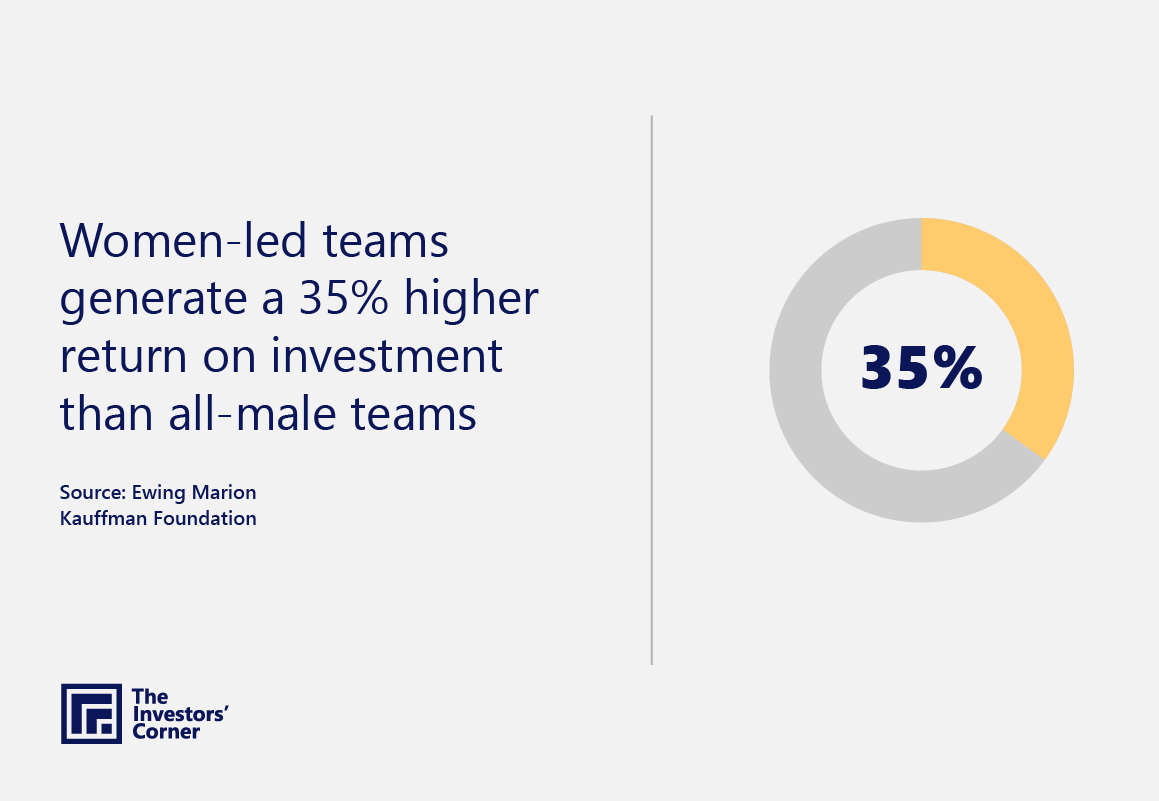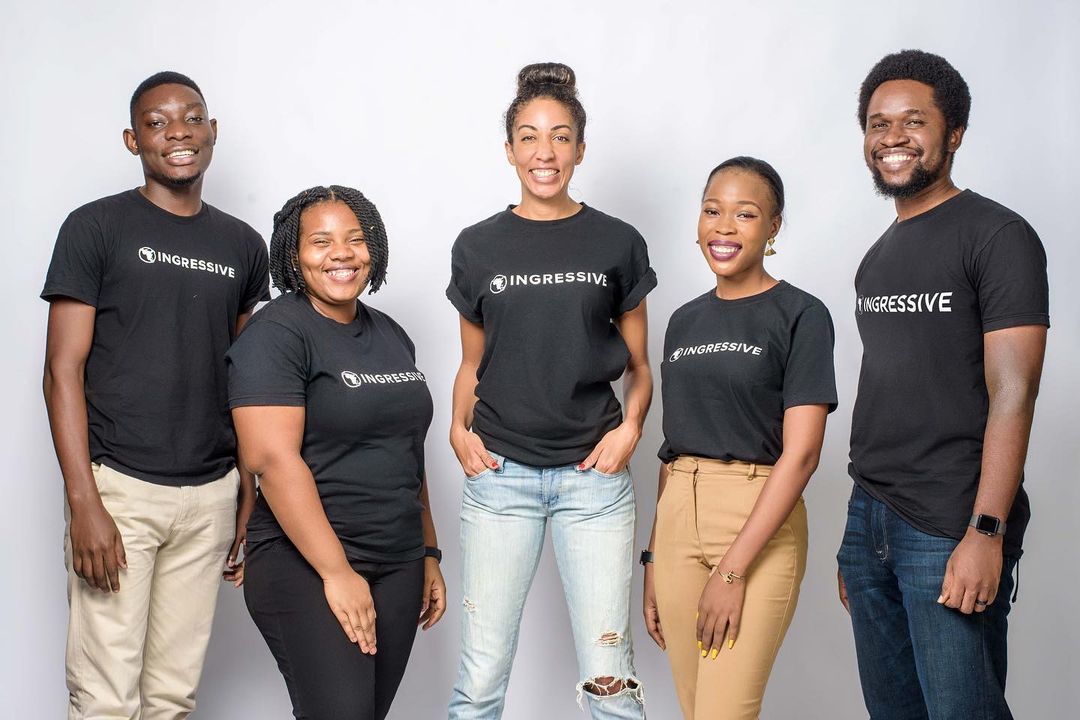The Investors’ Corner #4: Maya Horgan Famodu, Founder & Partner at Ingressive Capital
In this edition of The Investors' Corner, Maya Horgan Famodu shares her failed attempt in VC, the secret behind Ingressive Capital's success, and timely advice for founders.

In this edition of The Investors' Corner, Maya Horgan Famodu shares her failed attempt in VC, the secret behind Ingressive Capital's success, and timely advice for founders.
From being the first solo woman to raise a tech fund (Ingressive Capital) in Nigeria to increasing assets under management (AUM) from $5 Million to $50 Million, Maya has become synonymous with black excellence.
However, Maya hasn't always been this phenomenal.
In fact, if you had met her nine years ago, you wouldn't have considered her an outlier. In 2014, Maya was a 23-year-old with little work experience, no connections, and a failed VC fund.
So how did she get to the top in less than a decade? Even more, how has she managed to grow Ingressive Capital into a successful firm?
Maya answered these questions and more in my recent conversation with her. Keep reading to see what she had to say.
Have you always been entrepreneurial?
Yes. In fact, I've had a knack for entrepreneurship since childhood. As a kid, I would charge for household or neighbourhood-wide chores. In college, I co-founded a company doing online course evaluations for educational institutions. I briefly ghost-wrote for big-name US publications. I traded goods in college. Essentially, I was always on the lookout for money-making opportunities. And I'd like to think my family's social class influenced that.
Jeremiah: In what sense?
I grew up in a low-income family. For context, we lived in a trailer park in rural Minnesota. One winter, the roof literally caved in and we had to wear our jackets inside. I know what it’s like to be brilliant, but have no access and no resources.
When did VC come into the picture?
I tried to explore VC after graduating college. I started this exploration because I wanted to ensure that brilliant people, regardless of their background or upbringing, had the resources they needed to build wildly scalable businesses. Initially, I failed.
Jeremiah: Please shed more light on that.
After college, tried to raise a VC fund but couldn’t for two reasons:
First, Africa wasn't relevant on the map of venture capital at the time. Back then, investors didn't see any potential in investing in Africa. It wasn’t yet cool to invest in Africa.
On top of that, I had barely a year of work experience, which wasn't enough to gain the trust of investors.
How did you bounce back from that failed attempt?
I re-strategized and launched Ingressive Advisory, a market entry and advisory firm for global investors and investment groups. We worked with investors and businesses to assist them to enter and operate in Sub-Saharan Africa's largest tech-enabled markets. We did exceptionally well, with our clientele including over 50 corporates, funds, and individuals.
Jeremiah: That's a huge comeback.
Thank you.
Jeremiah: I'm sure that comeback wasn't without its challenges.
Definitely.
Care to share some of those challenges?
Sure. I had a couple of challenges that threatened Ingressive's success. My professional inexperience topped the list.
When I started Ingressive, I lacked corporate etiquette and struggled to create a healthy corporate culture. This constrained my relationship with some of Ingressive's founding members and employees. But over time, I made things right after developing better corporate skills.
And, I had a fear-driven negotiation style as I had just recently moved to Nigeria. It was zero-sum. That troubling principle made Ingressive lose many amazing people and partnerships. Fortunately, I dropped that harmful approach and now see negotiation as a win-win opportunity.

Additionally, there were no clear expectations in terms of responsibilities and company structure. This clogged the team's progress at first. Thankfully, I learned to have a long-term plan for the company and set short-term OKRs to help us achieve those goals.
Lack of sleep made things worse. For the first four years of Ingressive, I slept only four hours a night and didn't take good care of my body. As expected, this led to chronic exhaustion, and I couldn't show up at my best. It didn't help that I lacked advisors. So, I was simply winging it. However, I'm glad I now take good care of my body and have key advisors who guide me.
When did you decide to retry VC?
In 2019—we closed our first fund—five years after building Ingressive into a profitable company, establishing solid relationships, and securing clients who would later become investors in the fund. It was then I decided to build Ingressive Capital, a venture firm targeting 10% ownership in Pre-Seed to Seed tech-enabled companies based in Sub-Saharan Africa with typical check sizes of up to $400k.
Oh wow. How did you get HNWIs (High Net Worth Individuals) to give you their money, though?
I started from scratch. Remember, I didn't come from a wealthy family. So it wasn't like I had a list of connections at my beck and call. But I had a powerful tool at my disposal: social media.
Every day, I'd reach out to top business people—most of whom are now affiliated with Ingressive Capital—on LinkedIn, Twitter, and Instagram. I also sent out thousands of cold emails.
I took my outreaches to real life as I travelled back and forth between Lagos and San Francisco, visiting funds and tech companies. I'd often refuse to leave these organizations' waiting rooms until I met their executives. I was that focused on closing deals (laughs). The numerous rejections didn't deter me. I see it as a numbers game; if I close 5% of leads, and someone gives me a no, I know I need to get through another 19 rejections before my next "yes".

Above all, I earned the trust of HNWIs because I always do what I say I'll do. For instance, I sent emails and updates exactly when I promised to. Storytelling has moved the needle as well. I'm able to get HNWIs on my side through the stories I tell. Investors are keen on making money from deals. So, leveraging effective storytelling to show them how they can get value from your thesis is compelling. An investor once wrote a check on the spot simply because he loved my story.
Jeremiah: Great tactics and big ups on developing Ingressive Capital into a $10M fund with 39 investments.
Thank you, Jeremiah.
I see 40% of your investments are female-founded. Is this intentional?
Yes, it is. However, my decision isn't based on mere bias. There are data-driven reasons behind our key focus on female-founded or co-founded teams, one of which is that heterogeneous teams, specifically, those with female co-founders, perform significantly better than all-male teams.
Take First Round Capital, for instance. In 2015, an analysis of their portfolio companies revealed that companies with a female founder performed 63% better than investments with all-male founding teams. Also, three of First Round's top 10 investments of all time (based on value created for investors) have at least one female founder — far outpacing the percentage of female tech founders in general.
To add more credence, research from the Ewing Marion Kauffman Foundation found that women-led teams generate a 35% higher return on investment than all-male teams.

It is worth noting that we prioritize strategic diversity. We won't invest in a team just because the founders are females. We look at other factors like the founders' background and overall credibility. Gender isn't the only criterion.
What is the biggest takeaway from your 39 investments?
We've learned to focus on local founders.
Jeremiah: How so?
When we first started, our initial thesis was to invest in founders who had schooled abroad and had worked in global organizations before returning to Nigeria. We thought this was the sweet spot, but the results proved otherwise.
Investing in local founders had equal (if not more) upside than investing in foreign-schooled founders. Moreso, we figured we could add more value to our portfolio if we prioritize local founders.

Let's talk about the missed deals. What have you learned from those?
I've learned to keep decision-making within the firm. Once, we missed a great deal because I was trying to consult with an external advisory board and investment committee. At first glance, that seemed like a great strategy, but trying to get third-party approvals slowed us down. Since then, we've kept decision-making in-house. This is why we're bullish on building a team filled with experts and investors with a track record of making good deals.
The second lesson sounds counterintuitive, but missing specific attractive deals has made me realize that a "no" is sometimes not a "no". You can still find your way into a deal even when the founder closes the round. More often than not, you just need to figure out that founder's most pressing needs and show how you can solve them. This strategy has helped us secure certain "missed" deals.
I love your optimistic, resilient approach. How do you source deals?
Ingressive Capital’s deal-sourcing process is multifold. On one hand, we have Ingressive for Good, our non-profit arm, where we've gotten some fantastic founders.
But 80% of our deals come from our founder network. Our founders always refer us to their peers. They do this because of the immense value we offer them. Lastly, we have a Pan-African scout network filled with experienced entrepreneurs offering great deals.
How do you serve your founders?
We have an entire portfolio support team of experts with startup operational experience dedicated to helping founders. In fact, the number of employees on our portfolio support team is the same as the deal sourcing team.
Beyond that, we give our founders access to all our investors. Regularly, our companies pitch in front of our LPs, who run some of the world's most successful venture firms.
We also have a vast network of partners and consultants who provide market expansion, regulatory support, and business development.
Currently, we're building a founder community, where founders can easily get support from each other.
How do you identify outstanding founders?
First, we check if the founders have expertise in that specific sector. Grit and resilience are other skills we look out for. We want to be sure they're people that can invest a lot of time and effort into building their business. More importantly, we also see if they have integrity. Do they do the things they say they will do?
Business-wise, we look for signs of existing or possible traction. Do they have an actively engaged user base?
At the end of the day, it really depends on the sector. The qualities we want in B2B founders differ from what we seek from B2C founders.
What mistakes do you see founders making?
One, I see founders exaggerating their achievements. I get that many founders want to make their prospects look exciting, but there is a big difference between straight-out lies and painting a grand vision. Some of the TAM figures I see in pitch decks are ridiculously false.
Two, some founders don't have a financial plan. Now, I'm not saying a financial plan is cast in stone, but investors prefer it when they see you've been thinking about your likely expenses and milestones.
Another big mistake is not giving equity to founding members. You need to provide meaningful stakes to your employees to keep them engaged, and motivated and ensure there are aligned incentives.
For example, if your founding CMO or sales team has a salary and no equity, do they care about the sustainability of the sale, or speak with your product team to build out additional features that increase the stickiness of the client, but don’t add to their bottom line or bonus?
Lastly, founders should be careful with how they publicize their business. You don't need to be on the cover page of TechCrunch whenever you raise. Yes, this is a feel-good norm, but it might be worth being careful about it. Promotion can do more harm than good. So, tread carefully.
Before you go, what trends are you excited about?
I foresee valuations returning to reasonable figures. Gone are the days when unrealistic, greedy numbers were the norm. I'm also excited about the future development of health tech. I'm particularly thrilled about the possibility of health tech in improving women's reproductive health.
Editor's Note:
The Investors’ Corner is our latest web series spotlighting the stories of African-focused investors and how they make investments on the continent.
We will publish a new episode of The Investors’ Corner (TIC) bi-weekly on Saturdays by 8:00 AM (WAT). This season of TIC is done in partnership with and anchored by Jeremiah Ajayi, a Content Marketer for SaaS and VC.
You can contribute in two ways. One, let us know which investor you’d like us to feature. Two, give feedback and public praise for the episodes that you connect with.
If you’d like to partner with us to create other formats of this content, please reach out to hello@benjamindada[dot]com.







Comments ()